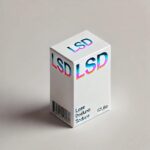Detox has become one of the most popular buzzwords in health and wellness, promising anything from weight loss to mental health. What is detoxing really, and what does science have to say about it? How does detoxing affect one’s health? This blog explores the science behind detoxification, including the physiology of the organs involved, common toxins, detox diets, and practical strategies for safe and effective detox.
The Physiology of Detoxification
Common Toxins and Solutions
There are innumerable forms of toxins in daily life, which obviously will affect the person’s life adversely in a tremendous way. Here is an example of such common toxins in everyday life for every human.
Environmental Toxins
- Toxins like lead, mercury, and pollutants from industrial and vehicle emissions can accumulate in the body.
- Everyday exposure to pesticides and household chemicals also contributes to our toxic load.
Dietary Toxins
- Processed foods often contain artificial additives, preservatives, and colorings that can be harmful.
- Excessive consumption of alcohol and caffeine can burden the liver and other detox organs.
Endogenous Toxins
- Normal metabolic processes produce waste that must be efficiently eliminated.
- Hormonal imbalances can lead to the production of excess endogenous toxins.
Supplements and Herbal Aids
Supplements can complement and support detoxification, especially when natural detox processes are insufficient. supplements for detox that support liver function and improve blood circulation may help enhance detoxification efforts.
The Liver: The Body’s Primary Detox Organ
The liver is often glorified as everyone’s savior in detoxifying the body. The liver processes blood from the digestive tract, filters out toxins, and then breaks down harmful substances using enzymes, transforming them into less harmful forms for eventual excretion.
Enzymatic Pathways and Detoxification Phases:
- Phase I Detoxification: Enzymes transform toxins into less harmful chemicals.
- Phase II Detoxification: These chemicals are combined with other molecules to make them water-soluble and easier to excrete.
Supporting Organs: Kidneys, Skin, and Lungs
While the liver is the primary detox organ, it is supported by other systems in the body.
- Kidneys: Kidneys remove waste products and excess substances from the blood, excreting them as urine.
- Skin: The skin helps to eliminate toxic waste and regulate temperature.
- Lungs: The lungs excrete vaporous waste materials, such as carbon dioxide, helping remove toxins from the body.
- Supplements like milk thistle, dandelion root, and turmeric can aid detox.
- It is important to choose supplements carefully and consult with a healthcare provider.
The Science of Detox Diets and Protocols
Detox diets come in different forms. There are many ways of pursuing detoxification and claims about its results. Some are all about juicing; others avoid some food groups to lessen their toxic load. Some studies show benefits; others highlight potential dangers and limitations of such diets. Some nutrients help the body with natural detoxification processes.
- Vitamin C, E, and selenium, among other nutrients, have a crucial role in detoxification.
- Fiber helps in the binding of toxins into the digestive tract and takes place for their elimination, making it an important source of nutrients.
- Improved detoxification can help improve blood circulation in men’s health and overall well-being.
The Impact of Detox on Gut Health
Detoxification relates a lot to gut health. A well-balanced gut microbiota favors effective detoxification as well as better health. While a detoxification diet can be beneficial there is also a risk of disturbing gut bacteria homeostasis in case of wrong application. Poor gut health can lead to serious health issues and negatively impact overall well-being.
The bacteria and other micro-organisms in your gut are known as your gut microbiome. The bacteria help to break down food, turning it into nutrients your body can use. Your gut microbiome impacts both your physical and mental health.
The Debate: Benefits vs. Myths
Scientific Evidence Supporting Detoxification
There is an ongoing debate about the efficacy of detox diets in the field of the World Health Organization. Positive results, especially for blood circulation in the human body after detoxification have been proved through studies. Studies showed the effect of detox diets on improving health markers such as blood and liver function. With both anecdotal and scientific evidence, it is believed that detoxification works.
Common Misconceptions and Myths
A myth about detox diets, however, is one of the many issues that must be addressed. According to medical professionals, detoxing is not purely a balanced approach to health in terms of men’s health and mental fitness. Proper guidance, however, would keep the detoxification safe and effective for the individual without compromising health.
Practical Detox Strategies for Everyday Life
Including some foods in the daily diet can contribute to detoxifying benefits reflected in overall health improvement. Leafy greens help improve detox and blood circulation; berries and nuts can also help improve blood flow and improve detox. Some lifestyle changes accompany natural detoxification and improve overall health.
- Daily exercise improves detoxification through sweat glands.
- Simple recipes and meal plans can make it easy to incorporate detox-friendly foods.
- Staying hydrated and exercising regularly are key to supporting natural detox processes.
- Adequate sleep and stress management are essential for maintaining effective detoxification and overall health.
- Intake of anti-inflammatory foods instead of added sugar and trans-fat foods prevents diseases like diabetes and cholesterol.
Regulatory Concerns and Safety Issues
FDA and FTC Actions Against Detox Products
Regulatory bodies have taken action against misleading detox products legally. The FDA and the FTC share concerns about false or misleading information and their negative impacts on public health and drug competition.
- Some detox products have been found to contain harmful ingredients not approved by regulatory agencies.
- Many detox products falsely claim to treat or cure serious illnesses.
- The FDA and FTC have acted against companies selling unapproved medical devices for detox purposes.
How to Identify Safe and Legitimate Detox Products
Individuals must be very careful while choosing detox products. One must research the products beforehand and consult the doctor before using those products. Also, be careful of exaggerated claims made about products or scientific backing of such products.
Final Thoughts on the Role of Detox in a Healthy Lifestyle
Detoxify is a very rich process that is backed by respective organs such as the liver, kidney, skin, and lungs. Knowing the kind of toxins that one is exposing himself or herself to, together with the science of detox diets, informs on possible strategies for detoxification. The best effective detox through proper methods and guidance is an asset to health for continued healthy living.
Frequently Asked Questions (FAQs)
Does it require detoxification for everybody?
Detoxification is a necessity for everybody. It is useful for everyone to improve their overall body health. One can consult a health provider to have definite results on how to start the detoxifying process.
Is detoxification harmful?
It can be yes; detox is harmful when it is not being done correctly. It is better to practice it with proper safety and consult a professional to avoid all possible risks.
How frequently should someone try a detox regimen?
Detox is recommended once or twice a year, although the ideal frequency depends on the person’s health as well as their individual goals. It is ideal for speaking to a doctor or healthcare practitioner for customized advice.

















